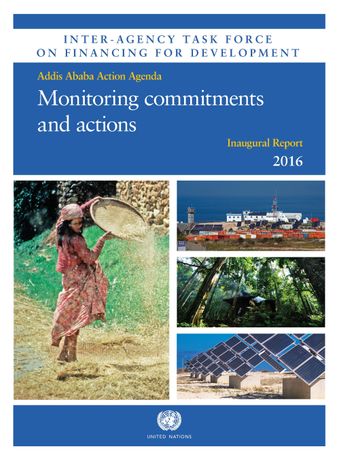- Accueil
- Publications A-Z
- Report of the Inter-Agency Task Force on Financing for Development
Report of the Inter-Agency Task Force on Financing for Development
The Report of the Inter-Agency Task Force on Financing for Development assesses progress in the seven action areas of the Addis Ababa Action Agenda: (i) domestic public resources; (ii) domestic and international private business and finance; (iii) international development cooperation; (iv) international trade as an engine for development; (v) debt sustainability; (vi) addressing systemic issues; and (vii) science, technology, innovation and capacity building. The series primarily targets Member States, particularly policymakers from ministries of finance, trade, foreign affairs and development cooperation, as well as central banks, local authorities, regulators and parliaments.
Filter :
Sustainable Development Goals
Subject
Publication date
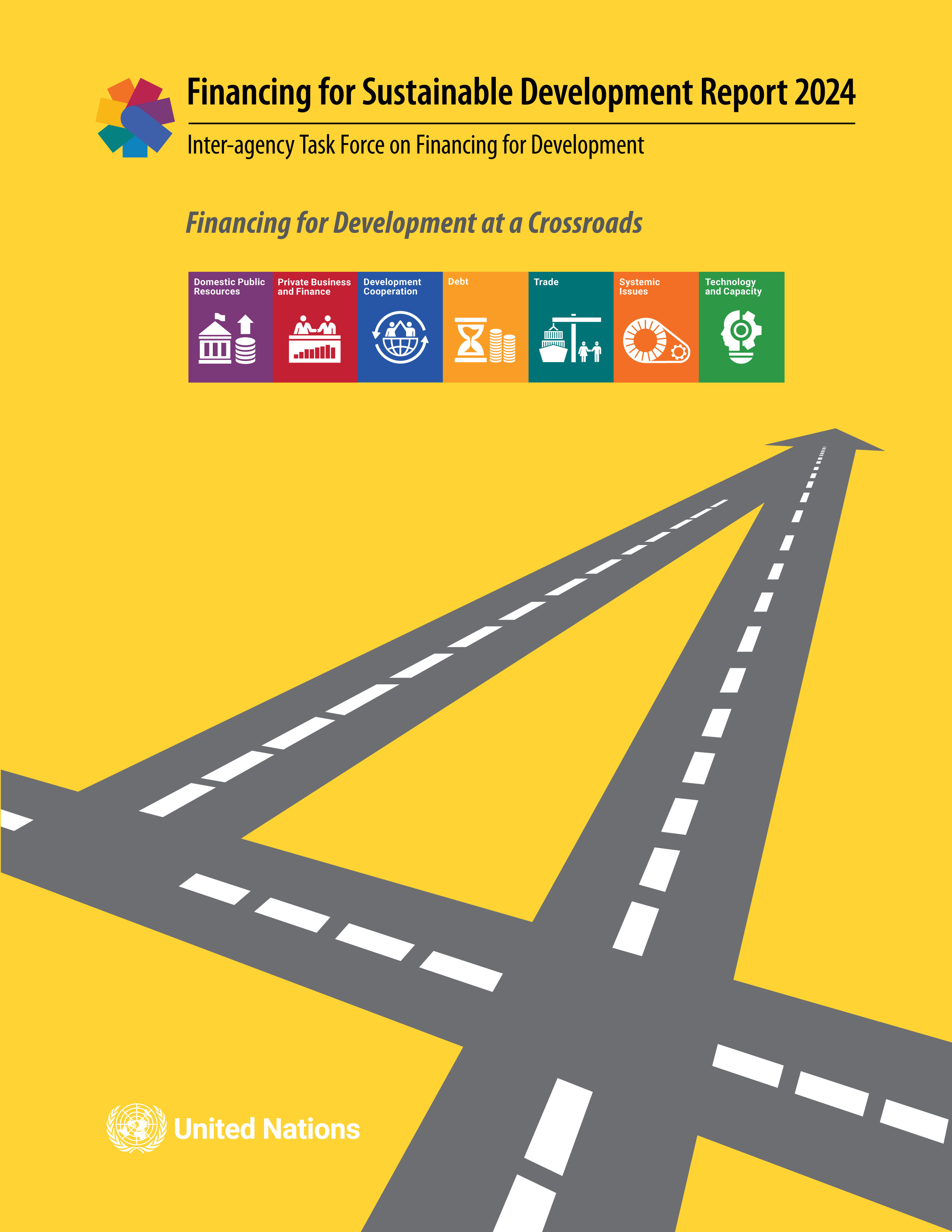
Report of the Inter-agency Task Force on Financing for Development 2024
Financing for Sustainable Development Report: Financing for Development at a Crossroads
This report finds that the world is facing a sustainable development crisis and that financing challenges are at the heart of the crisis and imperil the SDGs and climate action. It notes that the Fourth International Conference on Financing for Development in 2025 will be a last chance to correct course if we want to achieve the SDGs by the 2030 deadline. It calls for urgently closing financing gaps through an investment push for closing policy and architecture gaps to make the international financial architecture fit for purpose in a crisis-prone world and for closing credibility gaps translating rhetoric into action to rebuild trust in multilateralism.
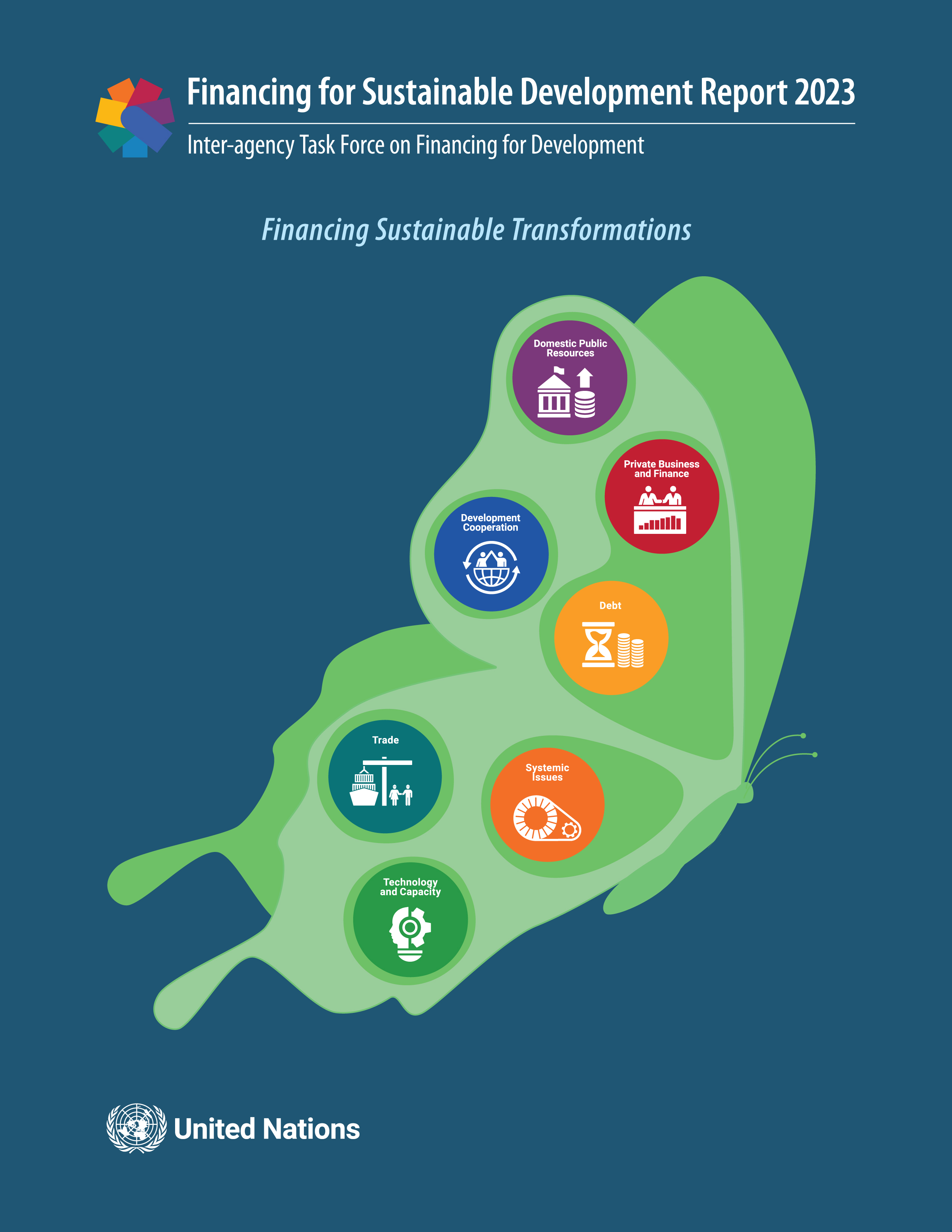
Report of the Inter-agency Task Force on Financing for Development 2023
Financing for Sustainable Development Report: Financing Sustainable Transformations
The Financing for Sustainable Development Report (FSDR) assesses progress in implementing the commitments and actions in the Addis Ababa Action Agenda. Global sustainable development prospects continue to diverge. Two years ago in the midst of the COVID-19 pandemic the Inter-agency Task Force warned of a global divergence that could lead to a lost decade for development. By 2022 these risks had materialized—a great finance divide was translating into a development divide. Over the past 12 months the war in Ukraine sharp increases in food and energy prices and rapidly tightening financial conditions further exacerbated challenges for many countries increasing hunger and poverty and reversing progress on the Sustainable Development Goals (SDGs). Despite some positive signs the global macroeconomic outlook remains highly uncertain and particularly bleak for many of the poorest and most vulnerable countries faced with growing debt service burdens and tight fiscal constraints. Delaying investment in transformation is thus not an option. The multiple crises can shorten the time horizons for decisions—by policymakers investors businesses and individuals. Delaying investments would put the 2030 targets out of reach and exacerbate financing and macroeconomic challenges down the line. Sustainable and productive investments today can transform and diversify economies and enhance resilience to shocks including inflationary supply-side shocks tomorrow. As laid out in the 2022 Financing for Sustainable Development Report such investments also enable countries to mobilize resources over time and better service debt. This is why the 2023 Task Force report focuses on sustainable transformations including a roadmap for governments along with changes in the way finance works.
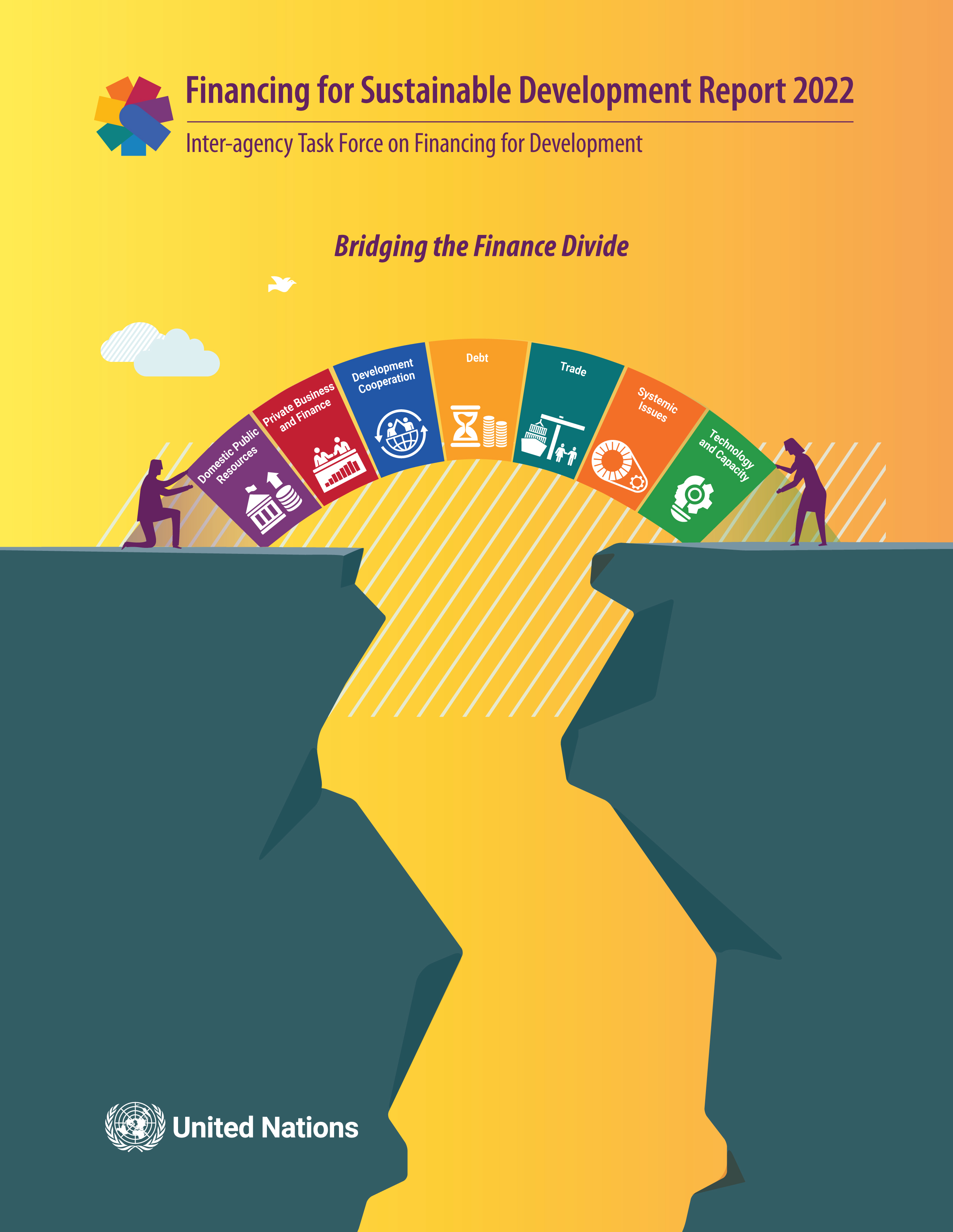
Report of the Inter-agency Task Force on Financing for Development 2022
Financing for Sustainable Development Report: Bridging the Finance Divide
The Financing for Sustainable Development Report (FSDR) assesses progress in implementing the commitments and actions in the Addis Ababa Action Agenda. The 2022 Financing for Sustainable Development Report: Bridging the Finance Divide identifies a “great finance divide” – the inability of poorer countries to raise sufficient resources and borrow affordably for investment. This contributed to developing countries being unable to respond to the COVID-19 pandemic and will hold them back from responding to new crises and investing in sustainable development. Developing countries need reliable and affordable financing to invest in the Sustainable Development Goals (SDGs).
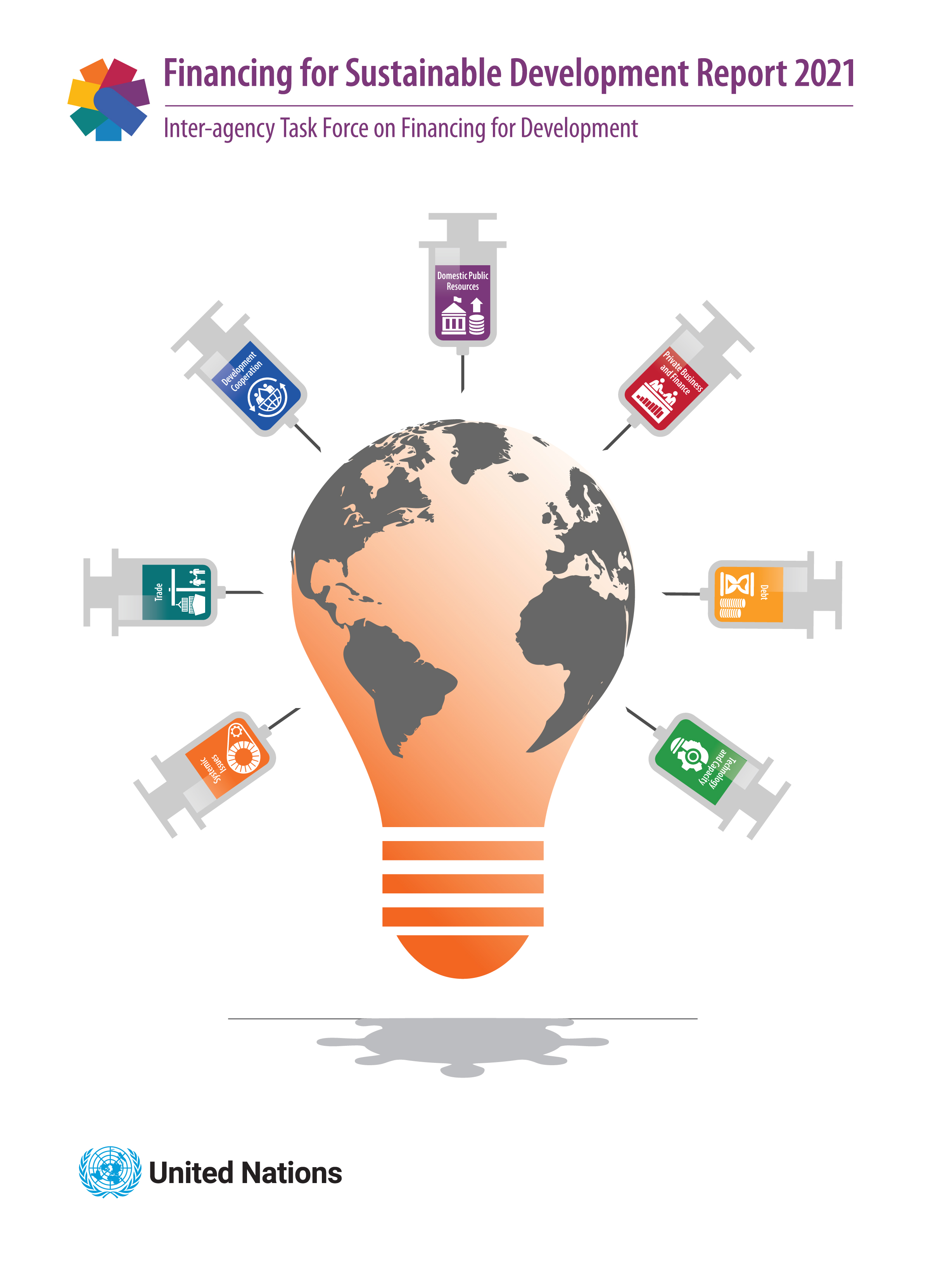
Report of the Inter-agency Task Force on Financing for Development 2021
Financing for Sustainable Development Report
This publication assesses progress in implementing the commitments and actions outlined in the Addis Ababa Action Agenda. It explores how the COVID-19-related global economic recession and financial turmoil are derailing implementation of the Agenda and achievement of the Sustainable Development Goals (SDGs). Even before the pandemic the 2020 Financing for Sustainable Development Report (FSDR) of the Inter-agency Task Force noted that there was backsliding in many areas. Due to the crisis global financial markets have witnessed heavy losses and intense volatility and the prospect of a new debt crisis is particularly worrisome. This report offers recommendations highlighting both immediate and longer-term actions including arresting the backslide to respond to the COVID-19 crisis.
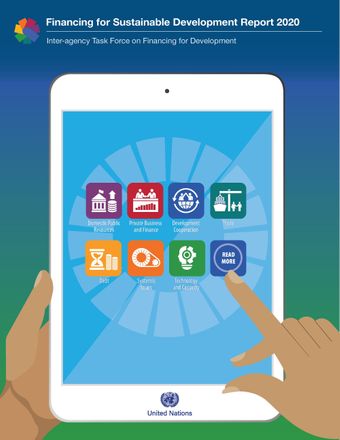
Report of the Inter-agency Task Force on Financing for Development 2020
Financing for Sustainable Development Report
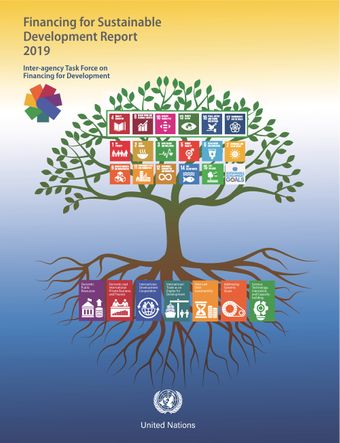
Report of the Inter-agency Task Force on Financing for Development 2019
Financing for Sustainable Development Report
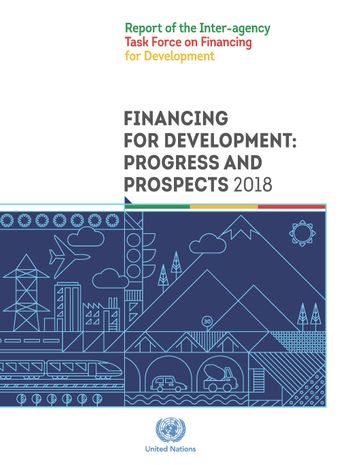
Report of the Inter-agency Task Force on Financing for Development 2018
Financing for Development - Progress and Prospects
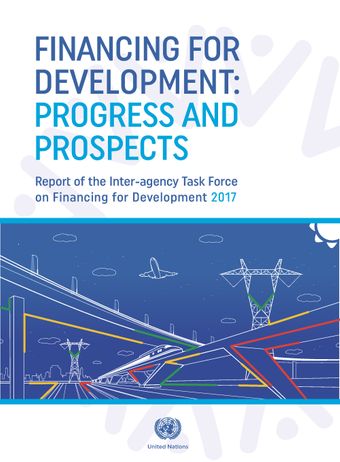
Report of the Inter-agency Task Force on Financing for Development 2017
Financing for Development - Progress and Prospects
